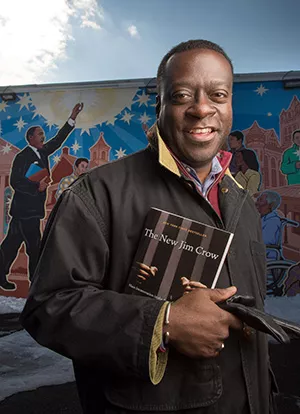Political Scientist Keith Reeves ’88 on Meek Mill and Criminal Justice Reform

Keith Reeves ’88
WHYY Radio Times: Meek Mill and Pennsylvania parole reform
Last month, Philadelphia rapper Meek Mill ended a 12-year legal battle after pleading guilty to a misdemeanor firearm charge. In exchange, the Philadelphia District Attorney’s Office dropped all remaining charges against Mill, who had spent much of his adult life on probation after his arrest at age 19.
To many, including high-profile supporters like Jay-Z and the Rev. Al Sharpton, Mill’s case demonstrates the need for extensive criminal justice reform, specifically targeting systems of probation and parole that can place people of color in a legal limbo long after their initial sentences have been served.
Keith Reeves ’88, professor of political science and director of the Urban Inequality and Incarceration program at the Lang Center for Civic & Social Responsibility, recently joined Radio Times on WHYY to discuss the case and opportunities to reform the criminal justice system. Reeves also teaches a course at State Correctional Institute Chester that gives incarcerated individuals and Swarthmore students the opportunity to collaboratively create and research projects and programs that could tangibly help the break the cycle of incarceration.
“In addition to a racial component, I believe there’s a class component and a neighborhood geography component,” Reeves says, regarding systemic biases in criminal justice that harm individuals like Mill. “If you’re growing up in a disadvantaged community with structural poverty, discrimination, and unemployment, that leads to being put into the criminal justice system and into a web of surveillance, arrests, and so on.”
Listen to the full discussion (Reeves’s segment begins around 15:00):



